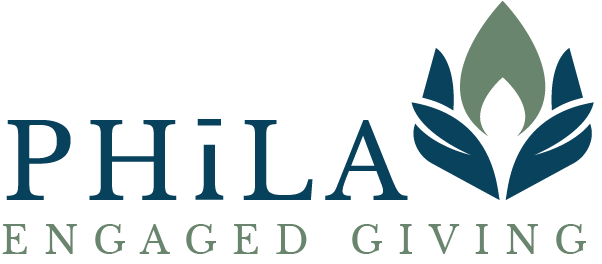By Olivia Reiten
Olivia when she was a senior at the University of Washington and a new Phīla employee.
I wasn’t quite sure of the role philanthropic advising played in an individual’s everyday life before I worked at Phīla Engaged Giving. I had assumed it was mostly companies, businesses, or multi-generational families that utilized these advising services. My understanding of philanthropy was essentially that people picked what organizations or causes were important to them, with no real plan as to how much, how long, or why they were giving. I knew giving monetarily could create lasting changes, but I never fully understood the privilege an individual possessed to even be in a position to donate money in a significant way. Working in an environment that deals with individuals and families with significant wealth, and their ability to give it away, I had to reevaluate my own understanding of privilege - especially through the lens of philanthropy. My time at Phīla has shown me how incredibly powerful philanthropy can be when people approach giving with heart and honest intentionality.
March and May 2020 marked two pivotal turning points within the world, and consequently at Phīla. The beginning of the COVID-19 pandemic in the United States and George Floyd’s murder sparked worldwide reaction and an outpouring of cries for fundamental change in support of social and racial justice. Philanthropic funding was put on center stage as a route to fund this change, and philanthropic advisors were working with donors to move money fast. Being at a small, young company allowed me the opportunity to work outside of the typical job description of an executive assistant and to pivot toward work intended to respond to these events. I was able to focus on areas that were necessary - and personally enjoyable - such as research and the creation of two important resources for the wider philanthropic community. Pull Up for Racial Justice and COVID-19 Response were Phīla’s contributions to the field and donors looking for ways to respond to the two biggest social upheavals in a generation. Taking on the responsibility of creating these two pages was a bit daunting, but it allowed me to further educate myself on the topics while also compiling accessible educational resources for others. Creating those pages involved some of my most memorable work I did while at Phīla, and it taught me how many of the world’s systems intersect with philanthropy at one point or another.
Now, being at a point of reflection, I have compiled some of the lasting lessons I have learned while working in the world of philanthropic advising and family philanthropy:
Philanthropy can be done in more ways than one.
At its core, philanthropy aims to help people and communities. While this still holds true, philanthropy has evolved in such a way that anyone can give in some capacity. Monetary contributions are only one avenue. It is also just as important to give via volunteering your “time, treasure, or talents”.
NextGen giving has huge potential.
The great wealth transfer will be instrumental in changing the landscape of philanthropy as we know it. Younger donors of my generation are interested in causes that have received less funding historically: climate change, racial justice, women’s rights, and healthcare access. This new generation of individuals coming into serious money has an attitude of “give it all away”, in the hopes of radically undoing our systematically unequal society. It is inspiring to see young individuals “put their money where their mouth is” and attempt to disrupt the status quo of “traditional” philanthropy.
Where you choose to give really does make a difference.
While financially supporting big, legacy organizations will remain important, providing funding at the grassroots level will become one of the most important funding avenues we can utilize. Individuals working on the ground and directly in the communities that are in need of funding have the best insight and tools to strategically implement social change.
Lastly, the “big” one:
Philanthropy doesn’t look the same for everyone, but putting some heart and honest intentionality into the process will make your giving go far.
This is the overarching theme I have come to learn while working at a philanthropic advising consultancy and what I love about Phīla’s philosophy. It’s one thing to throw money at a cause or organization, but it's another to take the time to do your due diligence on researching the organization(s), planning a giving strategy, and really diving into the why behind your giving. In my opinion, this is what the world of philanthropy can use more of: honesty. Since philanthropy will look different for everyone, what truly matters is putting your heart into it and being honest with yourself around what you’re really doing and what you hope to gain.
The experience, knowledge, and relationships I have gained while working at Phīla are invaluable, and I will carry them with me. I am lucky to have worked with some of the most inspiring, empathetic, and determined women I have ever met. Phīla has shown me not only the power of philanthropy, but the power of working with individuals who want to help others understand the power of their own giving. As a young individual with white privilege, it is my responsibility to recognize it, continue to acknowledge it, and use it to create space for the betterment of our society. Philanthropy can truly be a powerful tool for change, especially if there is heart and intentionality behind it. With this knowledge, I am inspired to take action and be a force for change.

